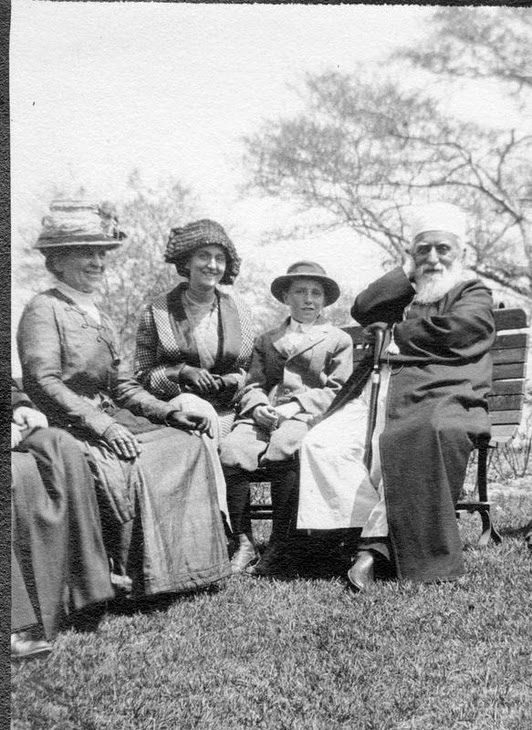Paris Talks: Need for Union between the East and West
For the full talk click here.
Even to this day, there is a distinct separation—characterized by stereotypes, prejudices, or otherwise misconceptions—of people belonging to the East and the West. To the West, the East is perceived as traditionalist, archaic. Similarly, the East considers the West to be materialistic and immoral. Without a common understanding, these seeming factions of the world would find themselves unable to reconcile what appears to them as conflicting worldviews, each opposed to the other and vying for supremacy and dominance over the other. These opposing forces manifest themselves geopolitically, economically, and certainly socially, to which we can all witness.
Hence, one hundred years ago, ‘Abdu’l-Bahá makes clear the necessity for unity between the East and West, that the “East is in need of material progress and the West is in want of a spiritual idea.”
Thus, one of the reasons giving rise to this necessity is to “give to each other what is lacking.” A clear example, it seems to me, of the blossoming of material progress in the West influenced by the East is in the case of Islam. During its golden age, Islam provided to the West new methods of thinking, new approaches to science, and manifold pieces of art and sculptures. The West, over the course of the following centuries, brought these developments to a higher degree, which is evident in the works and modes of thought during and after the European Renaissance.
Looking at influence in the reverse direction, we find the development of political institutions, advancement of science, and protections of human rights. This was made possible by the aforementioned interchanges, where such concepts could be refined and improved upon. Ultimately, the methods of finely tuned sciences, political institutions, and the safeguarding of the oppressed were disseminated throughout the world.
But we should take care not to draw incorrect conclusions regarding the union of the East and West. For instance, this concept should not be thought of in terms of uniformity, or that a one, single solution exists for the economic, political, and material institutions of the world.
Rather, as I see it, it seeks to eliminate barriers that prevent the not just cross-cultural sharing of information, experiences, and learning, but also the implementation of findings. Of what use is it to acquire new insights and truths if it is not to be incorporated into our societies? Approaching the unity of the East and West from this perspective, I believe, we are better equipped to promote the “interchange of gifts,” as described by ‘Abdu’l-Bahá.
So how, within this context, can we be mobilized for action? To “strive day and night with heart and soul to achieve this high ideal?” Two practices come immediately to mind that can be applied to our own private lives and our communities in our conversations and interactions: fostering unity of thought and humility in our investigation of truth. The East and West provide different ways of not just looking at, but also approaching the world. The more quickly we can recognize, similar to science and religion, that truth can be revealed by light from dissimilar angles, the more quickly we can find fuller, greater truth.
No doubt, this requires, even demands, humility in our investigation of truth. We risk leaving ourselves unfulfilled of our potential in understanding the world if we enforce our understanding at the expense of another’s. Of course, one’s understanding may be insufficient or incorrect. However, does this not highlight further the importance of humility, including accepting the possibility that our own understanding may be insufficient or incorrect?
On its face, the unity of the East and the West is a concept concerned with the system of the entire world. Its deeper and less obvious implications, though, prove to be meaningful in our own personal lives. As long as we are engaged in this process in our own lives, we are assured of divine help: “The devoted energetic work of the united peoples, occidentals and orientals, will succeed in establishing this result, for the force of the Holy Spirit will aid them.”


